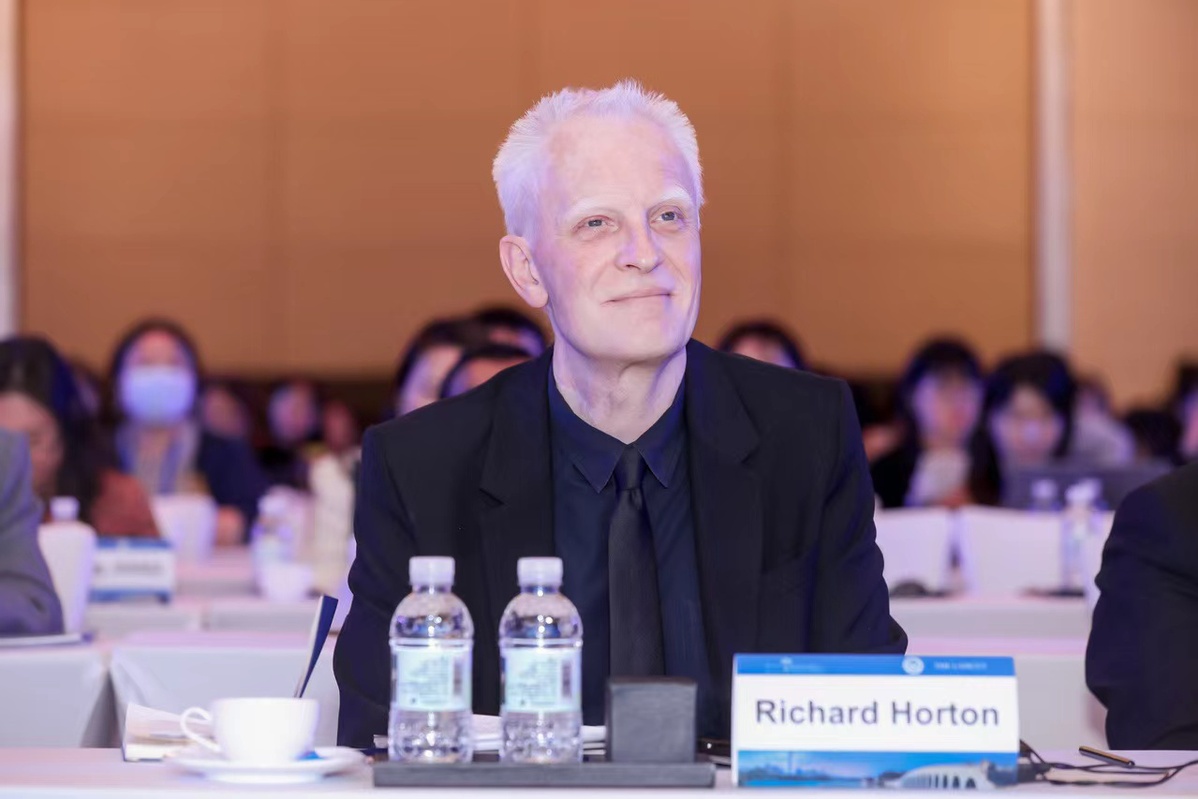Increase seen in influence of China's research


Science: Staying vigilant about paper mills stressed
Richard Horton, editor-in-chief of The Lancet medical journal, said he believes that Chinese researchers are eager to cooperate with scientists around the world and have much expertise and experience to share with the international scientific community.
Horton, who has edited the world-leading medical journal since the early 1990s, said that he observed in recent years a dramatic increase in both the quantity and quality of scientific papers from China.
"The quality of Chinese science has become some of the best in the world, which has encouraged Chinese scientists to step out and to be very active participants in an international conversation about science," Horton said during a recent interview in Beijing.
"I want to see the expertise of Chinese doctors, health workers and scientists deployed in the international arena, and that would be my earnest hope."
While recognizing the growing volume of papers written by Chinese researchers, Horton said the more important trend is the rising quality of their research work, as well as their heightened attention to clinical research and population health, on top of basic science.
"I think that's a very welcome move. Basic sciences are incredibly important, but are often a very long way from practice or clinic," he said.
"The trends that we're seeing now in the high quality of clinical and public health research mean that the impact of Chinese medical science can be almost immediate in China, but also internationally."
Underlying Chinese researchers' expanding prowess and international presence is their desire to "reach out to the international community and to be part of a global conversation about medicine, medical science and health," said Horton.
The Lancet, one of the most prestigious journals in the world, has stepped up cooperation with Chinese universities and research institutes.
Horton cited the example of four key reports that the journal has jointly released since 2018 with Peking University and Tsinghua University, focusing on healthy cities, maternal and child health, the aging society and climate change's impact on health.
"These four projects are examples of how we are trying to use The Lancet to bridge the gap between science and society, between science and policy," he said. "Partnership delivers impact, and partnership based on science can be an instrument to change society for the better."
Horton added that a number of further collaborations are in the pipeline, covering topics such as mental health, ecological civilization, noncommunicable diseases, liver cancer, and poverty alleviation and health.
He said that for the science community, the only way to tackle potential pandemics and other challenges facing humankind is to intensify cooperation and facilitate the free flow of information among scientists, despite headwinds created by political division and polarization.
"I think it's very important for those of us in the medical community to prove to political leaders who are nervous about collaboration that they have no reason to be anxious and, in fact, there is nothing but benefit that comes from closer cooperation between Western and Chinese scientists."
Horton said the importance of China as a source of knowledge and a source of friendship in the world is not fully appreciated in the political arena.
"So I'll be coming again soon to China to build that (message) with all my colleagues who work for The Lancet here," he said. "We really believe in forging these alliances, and we do so not just with words, but with deeds."
Horton also drew attention to the problem of paper mills — the production of fraudulent scientific papers — and the spread of misinformation, which hampered efforts to tackle the COVID-19 pandemic.
A recent article in Nature, another top scientific journal, said that an estimated 1.5 to 2 percent of all scientific papers published last year closely resembled paper-mill works, and the rate rose to 3 percent among biology and medicine papers. The article cited an unpublished analysis.
Horton said that every country in the world, including China, needs to be vigilant about paper mills and pay serious attention to clamping down on them.
"I feel as an editor (that) misinformation is the greatest threat we have today to making high-quality decisions in government about some of the most complex challenges we face," he said.
"Misinformation divides people. It sets one nation against another, one people against another and one culture against another," he said.
"I feel we all have a responsibility to defeat misinformation, and for a journal like The Lancet, it's very important that we crack down as assertively and aggressively as we can on the sources of misinformation."
- Senior government officials study Xi's speech at CPC disciplinary agency plenum
- Encounter Xinjiang: Fish swimming out of the mountains
- Chromite find, shale gas expansion to boost resources
- China's large drone completes pioneering plateau logistics flight
- Firms fined 20m yuan over subpar hydro works in Fujian
- Forecasting technology protects ancient relics





































